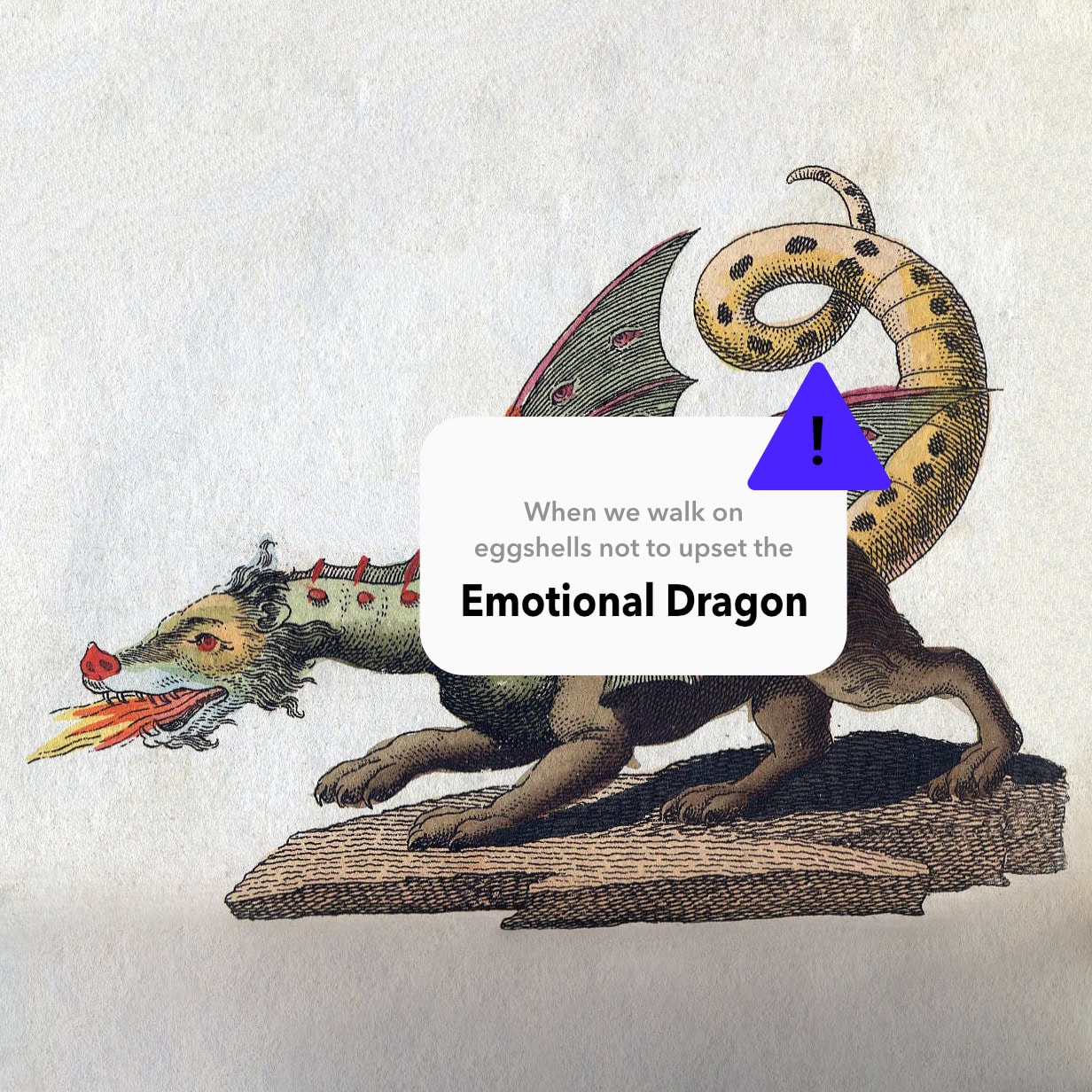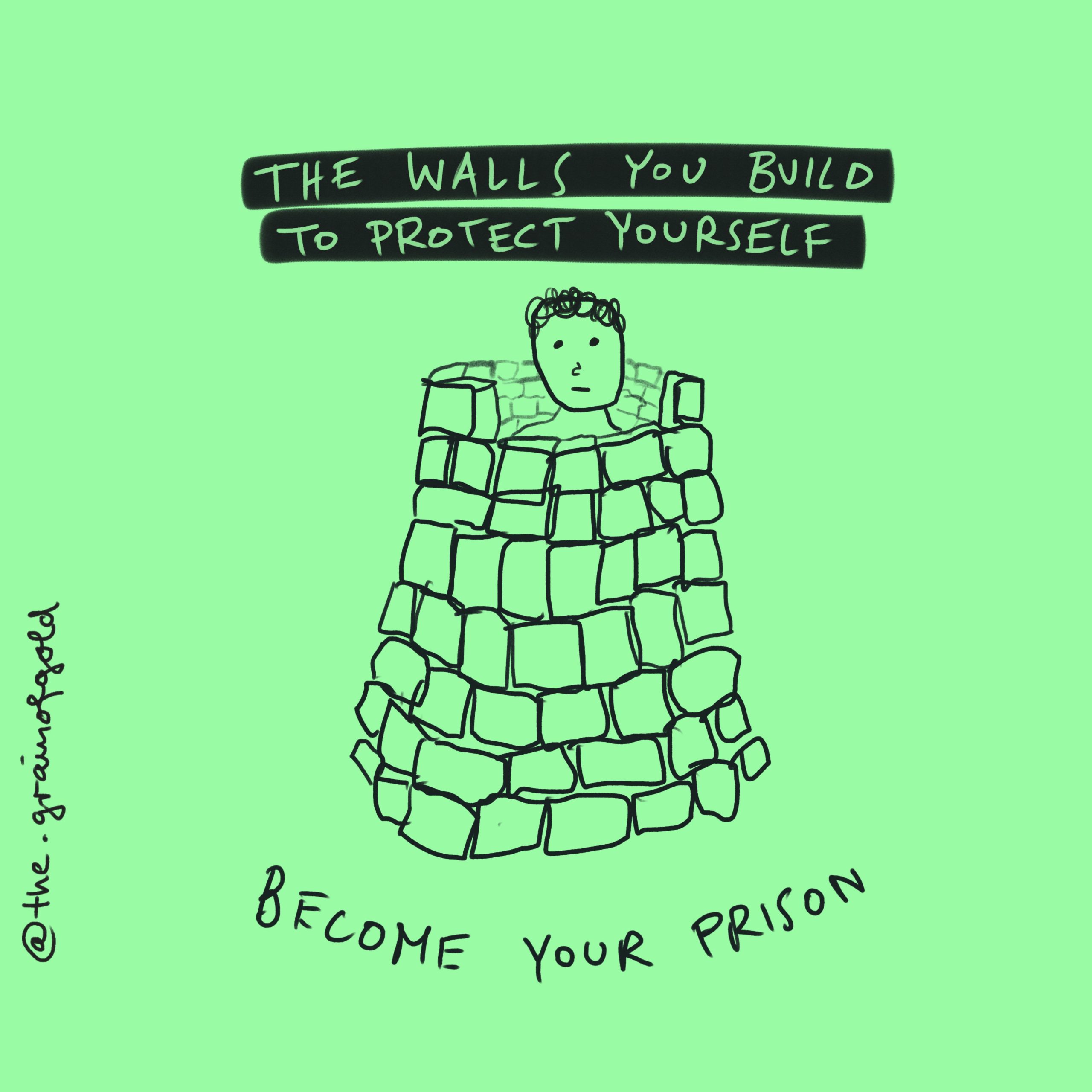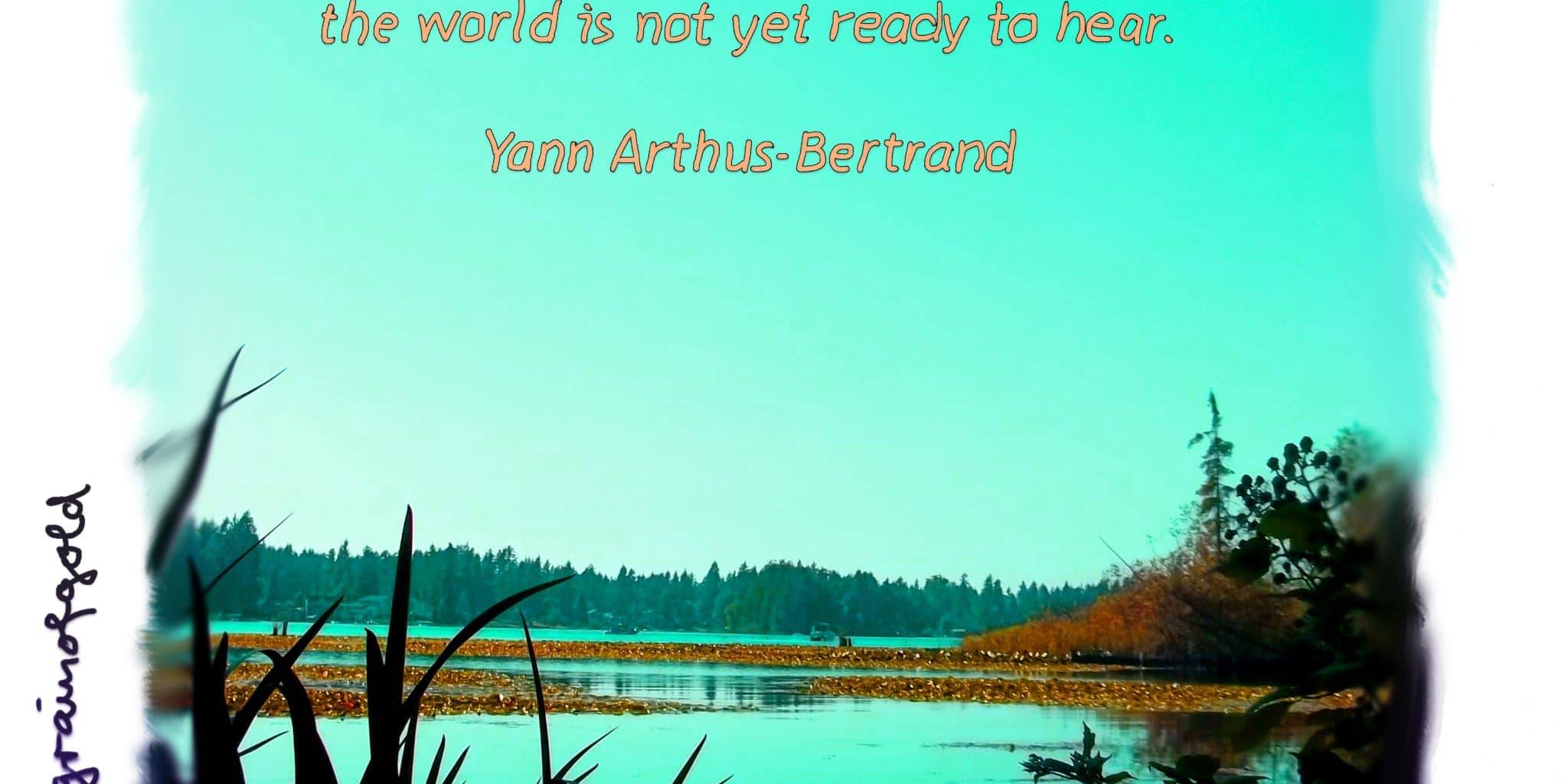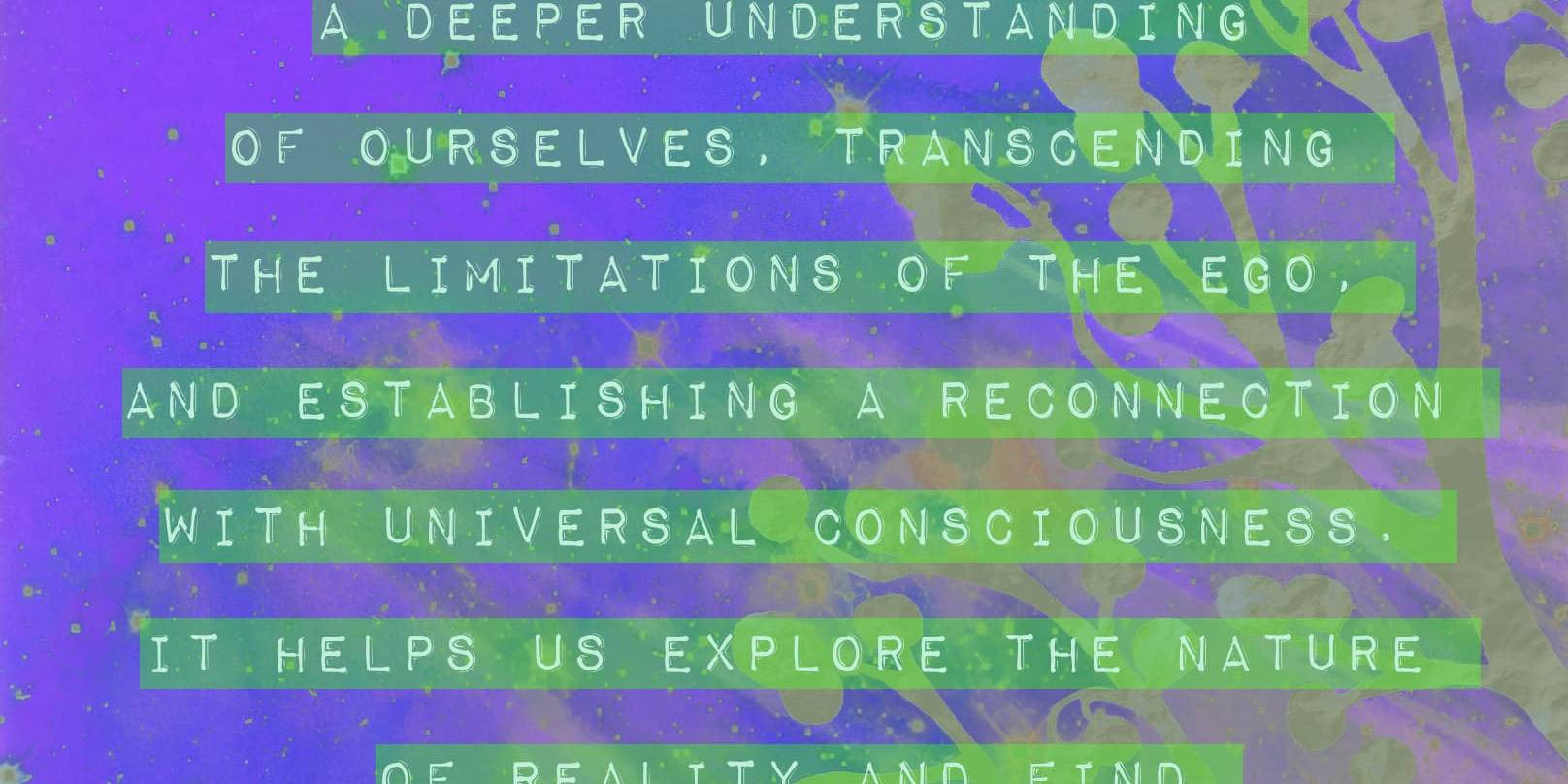Healing the Emotional Dragon
The classic quote "walking on eggshells" captures the feeling of tiptoeing around the sensitivities of someone who is easily emotionally triggered and unable to regulate their states and emotions.
If they can’t regulate their emotions, we are almost automatically drawn into doing it for them, or we become a possible trigger for emotional upheaval that needs to be controlled or manipulated. Either way, we are drawn into an unhealthy entanglement, a codependency.
And if you stay in such a relationship for too long, sooner or later you will be instrumentalized as an enabler and sidekick, just as children can become the emotional cushion or supporter for their emotionally dependent parents.
This is the emotional dragon, an emotional lack of self-reliance where we lack the ability to appease our emotional states on our own. It needs to be fed and cared for, protected and skillfully kept asleep so that its anger or emotional intensity and neediness, which is hard to calm down, doesn’t get triggered.
How to heal from this?
If we know this dragon of emotional immaturity, if we have experienced it in our home or with the people close to us, then we too are likely to become part of this dynamic. We too are likely to become an emotional dragon if we don’t do something about it.
To heal, we must learn to give ourselves what our parents were unable to provide: the female warmth that can hold the emotional pain and suffering in a calming and accepting way, and the male presence that makes us feel safe, just being there with us no matter what.
If we grew up in an emotionally immature environment, it’s likely that we don’t feel secure and trusting. We won’t know what it feels like to feel safe and to open up and share intimacies with each other based on mutual trust.
Instead, we probably have learned that it is better to build walls around ourselves, seeing vulnerability as a weakness and feeling a deep mistrust that keeps us closed in our defensive walls.
The problem is that our emotions need space to arise and to naturally dissipate. So when we’re closed off, our emotions have nowhere to go. Instead, they get trapped and intensified in the limited space of our defensive mind. This means that every time we get emotional, we feel the tension of the trapped emotion, which can become physically very uncomfortable and lead us to perceive our emotionality as something dangerous.
Our emotions become dangerous to us, just like the “emotional dragon” we had to tiptoe around during our upbringing. This time, however, we tiptoe around our own inwardly perceived emotions instead of those of others.
The reason we are unable to calm our emotions is that we lack a positive parental example of how to be warm and accepting with our emotions, so we can only resort to trying to regulate our emotions indirectly by trying to control everything and everyone around us that might trigger them.
And that is when the emotional dragon has taken root in us as well.
Closed off and unable to be vulnerable with our emotions, we also become unable to regulate them, just as our role models were.
To heal this generational issue, we need to understand the underlying destructive pattern, how the situation triggered our defensiveness, which at the time was the only solution for us to protect ourselves. This will help us to allow ourselves to open up again and give our emotions the space they need. We relearn how to trust and let our emotions come and go in their natural flow, rather than trying to control or defend from them.
And even though we may never have experienced it from our parents, we need to become the supportive open ground that is unconditionally there for us. Willing to sit with the emotional suffering and pain, telling ourselves that we are sorry that we have to experience this, unwavering in not leaving ourselves alone with it.
And that is all it takes for us to heal. Our own support, warmth and acceptance more than trying to fix, change or control anything. Just being there for ourselves and allowing ourselves to feel whatever emotion is there is all it takes.
You may also like
What the hell is a phony phenomenon?
It is sad that we have to say this: We were conditioned as…
Utopia – a distant dream?
While the concept of a perfect society holds enormous…
Beyond piety and institutions to a deep spirituality
While religions might give us a structured framework for…






